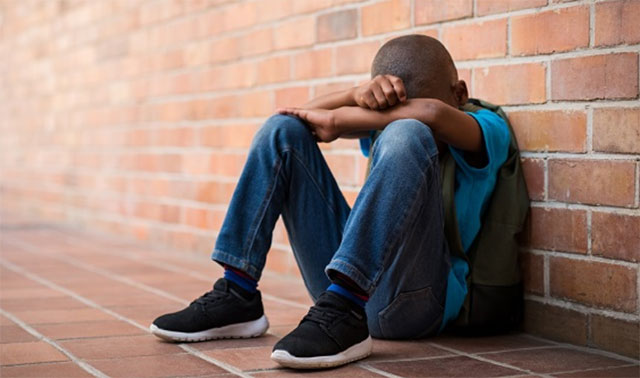When I met the boy, he looked calm, polite, and quiet. But behind that calmness was weight. I asked gently, “What changes would you want to see at home?” He paused. Then said slowly, “I’m tired of my parents’ fights. They abuse one another. Home is no longer peaceful. They keep saying they’ll separate. I can’t choose between them. If they separate, who will I stay with? Dad is financially stable. Mum is caring. I feel like I’m the problem. I’ve tried to talk to them, but they don’t listen. I’m tired of coming between their quarrels. I’ve decided to stay in my lane. Better I don’t meet either of them. I can’t concentrate in class anymore. I’m always fearing their separation. I just want peace.”
This is not an isolated story. Many children across our homes are carrying emotional burdens in silence. They live in houses full of tension. They see everything, hear everything, and feel everything, even when adults think they’re “just children.” The loud fights. The cold silences. The blame. The threats of divorce. And when the noise stops, the child is left to pick up the emotional pieces alone.
We often mistake these children for being disrespectful, withdrawn, or moody. But in reality, they are hurting. They’re overwhelmed. Some stop talking. Some hide in their rooms. Some fail in class. Others start spending hours on phones or TV to block out the pain around them. It’s not rebellion. It’s survival.
Dear parent, before rushing to punish or label your child, ask yourself, what are they seeing? What are they feeling? Is your home a safe place for them emotionally? Even if you’re going through real issues with your partner, your child shouldn’t carry that burden.
If conflict is constant, seek help. Talk to a counselor, pastor, trusted elder, or someone who can help restore peace or at least reduce the damage. And no matter how angry you are, never force your child to choose sides. “Who will you stay with?” is a question that breaks a child’s heart in ways you may never fully understand.
Sit down with your child. Ask them how they are. Apologize when necessary. Let them know, “This is not your fault. We are working through adult issues, but you are safe and loved.” If staying together peacefully is no longer possible, then co-parent respectfully apart. It’s better than raising a broken child under one roof full of war.
Fellow parents, home should be a place of rest. A place of security. A place of love. Not a battlefield where a child has to survive emotional attacks daily.
If you recognize your home in these words, don’t ignore it. Your child’s emotional well-being, school performance, and sense of identity depend on the peace you create around them. You may not solve all your marital issues today. But please protect your child’s heart. Sometimes the best thing you can do as a parent is not to win an argument but to protect the one person silently watching and learning from it all.
Let your child grow in a home of peace, not fear. Their silence is a cry. Please don’t wait until it’s too loud to ignore.

 Constance Kiconco is a dedicated Child and Adolescent Mental Health Therapist with certifications in: Cognitive Behavioural Therapy, Child Psychology, Addiction and Substance Abuse Treatment, and Suicide and Violent Behaviour Studies. She has hands-on experience at Mulago Adolescent Clinic, Mulago and Nsambya Hospital T1D clinics, where she provides psychosocial support and counseling to young people facing a range of mental health challenges. Her work is grounded in empathy, structured care, and a passion for emotional wellness and community transformation.
Constance Kiconco is a dedicated Child and Adolescent Mental Health Therapist with certifications in: Cognitive Behavioural Therapy, Child Psychology, Addiction and Substance Abuse Treatment, and Suicide and Violent Behaviour Studies. She has hands-on experience at Mulago Adolescent Clinic, Mulago and Nsambya Hospital T1D clinics, where she provides psychosocial support and counseling to young people facing a range of mental health challenges. Her work is grounded in empathy, structured care, and a passion for emotional wellness and community transformation. The Independent Uganda: You get the Truth we Pay the Price
The Independent Uganda: You get the Truth we Pay the Price





